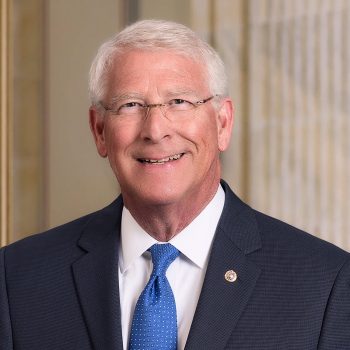
People stand in a long line to order from a food truck at an event at Piedmont Park on April 8, 2018 in Atlanta, GA.
Food truck regulations around the country continue to be challenged in court because they are indefensible from a legal perspective.
By: Jon Pritchett, President and CEO of Mississippi Center for Public Policy
If Tupelo leaders continue to try to regulate these businesses in an effort to protect the brick and mortar restaurants, it is very likely the same scenario will play out in the city that gave us Elvis. The constitution specifically prohibits such economic protectionism. Our legal arm, the Mississippi Justice Institute, has already cautioned the City Council against such actions.
Rather than making the case by leveraging the consequences of a legal challenge, I would like to appeal to the leaders of Tupelo to consider the practical reasons why being on the side of economic liberty is the prudent choice. This is not a partisan issue. It is an issue of free enterprise, consumer choice, and the proper role of government in a system of capitalism.
It is not the role of government to protect any business, brick and mortar or otherwise, from competition. The free enterprise system operates correctly when consumer choice, not political blessing, is the basis of choosing the winners and losers.
From a practical standpoint, it is also a mistake to thwart a powerful economic trend like food trucks. These businesses are examples of entrepreneurs responding to market signals. In so doing, they are contributing to the local economy by serving a customer niche. Brick and mortar restaurant entrepreneurs can do the same, and many have. All of these entrepreneurs, new and old, are creating unique options and that work to build a more diverse and appealing food marketplace in Tupelo. In turn, this attracts more consumers to the downtown – creating a bigger, healthier and more prosperous local economy.
In a properly functioning economy in America, the success of a food company should be based on how good the food and service is; not on how well connected it is to the political class. In a system of capitalism, competitors respond to consumer trends with innovations and improved offerings, not by seeking government help to build a moat around their businesses. We should be encouraging entrepreneurs and risk-takers, not creating hurdles out of a misplaced sense of obligation to protect existing businesses.
In many ways, the food truck controversy is similar to those disputes we’ve seen around the country where local governments are determining how to regulate Airbnb and Uber. Rather than government looking to create new and restrictive regulations for these emerging businesses, they should be thinking about how to reduce the existing regulatory burdens on brick and mortar restaurants and hotels. The local economy would be the beneficiary of such actions and no one would argue against a policy that spurs economic growth – especially not in a state where we have struggled to experience sustainable growth in our private sector.
On behalf of customers, competition, and consumer choice, I hope this appeal to the political leaders of Tupelo does not land on deaf ears. Cites across the country are realizing these kinds of cases are very hard to defend. However, the City Council should not vote to keep the regulatory burden for food trucks low out of a fear of the legal consequences; they should do it because it’s in the best economic interests of Tupelo.
This column appeared in the Daily Journal on October 28, 2018.











